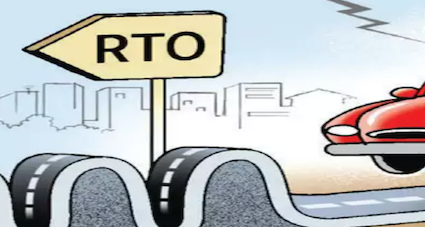My “sasural” of almost half-a-century now is a delightful single-storyed house in a leafy backlane of a Bengaluru Development named, interestingly enough, after a foreign currency that signified in that era the power of Western currencies over the minds and bank balances as well as aspirations of middle-class India. Be that as it may, the road in front also happens to be a convenient short-cut for people in their vehicles who try to avoid a particularly crowded traffic signal, and for their efforts get blessed with a succession of speed breakers.
One of the bigger speed-breakers, it is almost a mini hill station in its own right, is right outside the gate. The reason for this is, nursery schools on both sides, and a full-fledged “public” school right across. This suits us – we have eminent free security 24×7, and the sound of little children bawling or belting out the same nursery rhymes that our children and their children are offering to their neighbours somewhere, is kind of circle of life inspiring.
Early pre-dawn, the last-mile delivery fleet for some online shopping outfits, starts rolling out. Almost all of them, 2, 3 and 4 wheelers, are now battery – electric. Having presumably been charged overnight, they are off to make their deliveries, which in Bengaluru start from 6am onwards, or even earlier if so desired. Fresh produce, milk, white goods, FMCG, everything. The gentle humm and whine of the electric engine spools down as the battery buggy approaches the speed breaker and then like the local trains in Bombay used to sound, notches up again, with a pleasant whirr and without any offending smells or emissions.
By about 7 or 7:30am, the rest of the world and their infernal combustion engines, the bigger the better for them, are up and about, and the air as well as the ground starts smelling of fumes again. Especially as they slow down, down-gear, and then rev up again to cross the speed-breaker.
I am in Bengaluru for the delivery of an Indian battery scooter, the Ola Electric, in which the main component – the battery, is made at an in-house facility in Tamil Nadu. Not imported from God knows where with God knows what inside.At a modest estimate, about 60% of the cost of the two-wheeler is the battery – and the cost of that battery, one of many “lithium” options, can only go down with time.
More interesting is the Business – to – Customer direct sale method being propagated. Selling a motor vehicle directly to a customer is not difficult anymore – insurance, finance, delivery and the rest of it, are all easily available through a variety of third parties. The EMI for a battery scooter, for example, or the all-inclusive monthly lease, is less than the cost of a 2AC train ticket to most home-towns or the fuel costs of a typical petrol scooter.
What remains is the registration and the maintenance.
First – the maintenance – simple. Think of your water filter. Body work in case of accident – a new body can be delivered at fairly reasonable costs, or repaired at a variety of friendly neighbourhood garages that are being upgraded. There are very few moving parts in a battery vehicle – think of the ceiling fan in your home. Battery is safe, and insured, the major cost is secured.
Next – registration. Ministry of Roads, Transport and Highway has made online citizen services into a very workable product. Some States are ahead of others in adopting these online direct registration options; other States are still stuck in touts and agents land.
Is your State in line with online registration of new motor vehicles, battery or fossil fuels?
THAT is the question. Out of the 3 States I call “home”, 2 are, and 1 is still stuck in the Land of Touts.
Veeresh Malik was a seafarer. And a lot more besides. A decade in facial biometrics, which took him into the world of finance, gaming, preventive defence and money laundering before the subliminal mind management technology blew his brains out. His romance with the media endures since 1994, duly responded by Outlook, among others.
A survivor of two brain-strokes, triggered by a ship explosion in the 70s, Veeresh moved beyond fear decades ago.


